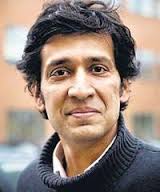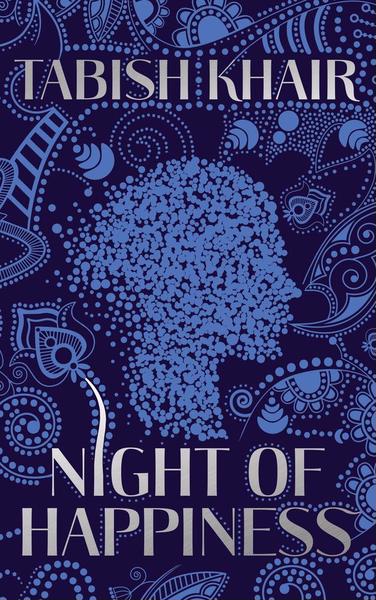Night of Happiness
Tabish Khair
|
|
There is nothing solid or pragmatic about happiness, grief, love. A successful business, however, has to be run along sensible lines, and a businessman must be able to count on his employees just as he can count on the food on his plate actually being there. It is at this junction of reason, driven by the evidence of one’s physical senses, and the other, intangible, unbelievable world that Tabish Khair places his new novel.
A slender, brisk narrative, it takes its title, Night Of Happiness, from “Shab-e-baraat”, a festival when some Muslim sects visit graveyards, light incense and consecrate halva in memory of ancestors and other departed family members. Naturally, a reference to the dead suggests a paranormal setting. This is, however, not so much a paranormal tale as it is a story about the struggle to retain one’s sense of reality, to remain centred, and about trust. Ahmed’s secretThe narrator is an “import-export” businessman, Anil Mehrotra, who boasts a company several employees and an international clientele. His right hand man is Ahmed, a man who is both dignified and dependable, reticent and hard-working almost to an extreme. An unhurried, deeply self-respecting man, and therefore also commanding respect. He has unusual linguistic abilities, and is at ease with cultural differences. But he will no more bow to a mullah’s dictates than he will give up on his own faith. He is one of those people who possess a “deep and mysterious sources of strength and calm, men and women we fail to recognise in a crowd, because we no longer pause to look, for we associate strength with violence, or at least with action.” Ahmed is willing to work in all circumstances, all days, including Eid. The only exception is Shab-e-baraat. One stormy night, when he cannot make his way home in time, Mehrotra decides to drive Ahmed home. What he sees in his apartment forces him to reassess not only their professional relationship but also Ahmed’s antecedents. Is he a fraud? Does he have extremist leanings? Is he stable? Most importantly, should he be fired? Mehrotra does what his rational mind dictates; he hires a private detective. This way, he discovers the stories that Ahmed has not told him in all the years they have known each other. He discovers a boyhood spent in a small town called Phansa, “a taluk town in a godforsaken state”, with none of the grace or wealth of charms offered by cities like Lucknow or Old Delhi, and a love that nobody approves of. Is suffering visible?The book leaves a crumb trail of discomfiting questions about what it means to be a Muslim in contemporary India – discrimination, being reduced to a single label even by well-meaning employers, ghettoised in parts of town where the streets are dim and the air thick. It also contends with the double whammy suffered by Muslims who witness a growing orthodoxy, and the dismissal of women’s rights even in violation of religious law. On the other hand, men like Mehrotra take comfort and security for granted. They do not want to think of themselves as bigots but are easily made uncomfortable by a neighbourhood poorer than their own. They are not fundamentalists. They read books and attend literary events. Their lives are cool, measured, and they think of themselves as sensible people. However, this particular narrator also has a gift of imagination. When he picks up the bare bones of a story, his mind does the trick of making it flesh. Partly through his own determined quest for logical answers, and partly through empathy, he comes to see what was thus far missing. Finally, this novel is an investigation into things that are non-evident, that cannot be proved. Or perhaps, things that we’d prefer not to see. For, even after the narrator has the facts of his employee’s life in a file, he struggles to accept Ahmed’s reality. “Can one pity suffering that refuses to show?” he wonders. It is inevitable that the reader, along with Mehrotra, shall acquire a full understanding of Ahmed’s suffering as well his strange happiness. The path to this understanding, however, cuts through the defences of reason and leads to that which can be recounted, but will not necessarily be believed.  Tabish Khair was born in Ranchi (now in Jharkhand, then Bihar), India and grew up in his hometown Gaya (Bihar). He is a critically acclaimed author and poet. His honors and prizes include the All India Poetry Prize and university fellowships at Cambridge, Hong Kong and Delhi. Tabish Khair was born in Ranchi (now in Jharkhand, then Bihar), India and grew up in his hometown Gaya (Bihar). He is a critically acclaimed author and poet. His honors and prizes include the All India Poetry Prize and university fellowships at Cambridge, Hong Kong and Delhi. |

